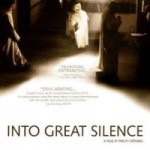This is part two of a series, which despite its obnoxiously long title, is simply on poems about stars. In the first part, I interact with Robert Frost’s “Take Something Like a Star” and John Keat’s sonnet “Bright star, would I were steadfast as thou art.” Here I engage with Shakespeare’s Sonnet 116 and a small section of Canto XXVI from Dante’s Paradiso.
In part one, we discover something seemingly fundamental to being human, namely we navigate the ways of the world by fixing our eyes on some thing beyond ourselves. According to Frost, however, what precisely that transcendent something like a star actually is is not so important so long as it anchors us against the vicissitudes of life – many a thing will do.
SHAKESPEARE
In Sonnet 116, Shakespeare suggests differently. For the bard, it is love (and no other) that is the guiding star.
Let me not to the marriage of true minds
Admit impediments. Love is not love
Which alters when it alteration finds,
Or bends with the remover to remove:
O no; it is an ever-fixed mark, 5
That looks on tempests, and is never shaken;
It is the star to every wandering bark,
Whose worth’s unknown, although his height be taken.
Love’s not Time’s fool, though rosy lips and cheeks
Within his bending sickle’s compass come; 10
Love alters not with his brief hours and weeks,
But bears it out even to the edge of doom.
If this be error and upon me proved,
I never writ, nor no man ever loved.
In this sonnet, Shakespeare’s central point is that true love doesn’t change. True love necessarily persists. It is this quality, its inalterability, that enables it to be the guiding star.
In the first two lines, “Let me not to the marriage of true minds admit impediments,” Shakespeare alludes to a portion of the contemporaneous standard wedding ceremony in the Church of England. Specifically, this is referred to as the “solemnization of marriage”: “If any of you know cause, or just impediment, why these two persons should not be joined together in holy Matrimony…” Though a wedding is alluded to, it’s not obviously clear that the Bard is referring to romantic love, at least not in the typical romantic sense. He’s referring to the marriage of true minds not hearts. In any case, it’s clear that the love Shakespeare lauds is that love which doesn’t change.
He employs wonderful metaphors to paint this kind of love. The first is that love is a lighthouse (lines 5-6). Love is a tall, stalwart structure on the shore directing sailors away from treacherous shoals and into safe harbor.
More to the point for purposes, in line 7 Shakespeare claims that love is Polaris: “It is the star to every wandering bark.” Back in Shakespeare’s day, a ship could have been called a “bark.” Despite the continual advances in cartography, sailors have relied on celestial navigation for thousands of years.1
According to Shakespeare, for all the lost or wandering souls, love is that lodestar that can direct every wandering bark. The central star for celestial navigation is Polaris. It is very much the star for wandering barks. Polaris, also known as the North Star, is particularly useful for navigation because it is located almost directly north or above the axis of the earth and appears frozen in the sky, with all the other stars rotating around it. Consequently, it is a “fixed star,” appearing not to move in the sky and so particularly useful for navigation.
DANTE
Like Shakespeare, Dante views love as that stalwart, immoveable, unchangeable thing upon which all else revolves. Dante, however, takes this assertion one step further. Whereas Shakespeare descries the quality of true love, he does not dwell on loves most fitting object. Dante, on the other hand, makes it abundantly clear what ought to be mankind’s proper object of love. That is, it is not enough to say love is the guiding star, we must be explicit about the direct object of that love.
This is perhaps most clear in Cantos XXIV-XXVI in his Paradiso, the oft neglected red-headed stepchild of the Divine Comedy. In this section of Paradiso, Dante has ascended to the eighth heaven, the sphere of the fixed stars, which correspond to the three theological virtues: faith, hope and love (1Cor 13:13). With Dante, as with Paul, love is the greatest of the theological virtues and so is the chief among the fixed stars.
In Cantos XXIV-XXVI, Dante sits for an entrance exam into heaven. This “testing” is not so much to determine whether he will “make it in” but to provide him the opportunity to prove the strength and substance of his faith, hope and love:
In Canto XXIV, St. Peter is tasked with testing Dante about faith:
If love and hope and faith he [Dante] truly has,
You [Peter] will know, for your eyes are fixed upon
The place where everything that is is seen (Paradiso, 24.40-42)
While the question in Canto XXIV is “what is faith?” the questions posed in Canto XXV – this time by St. James – are:
What is Hope, how much of it
Thrives in your mind, and where does your Hope come from…
What promise does your Hope make to your soul (Paradiso, 25.46-47…87)
Canto XVI is where St. John interrogates Dante about love. Unlike in Cantos XXIV and XXV, in this canto Dante is not asked to define love, he is asked a different question. He’s not asked “what is love?” but “what do you love and why?”
In response to the question what do you love? Or “tell what is it that your soul is set upon” (Paradiso, 26.7-8), Dante says the object upon which his soul is set is God:
The Good, that full contentment of this Court,
Is Alpha and Omega of all texts
Love reads to me in soft or louder tones (Paradiso, 26.16-18).
St. John follows with the rejoinder that Dante must be more specific and explain why God is the chief object of his love:
But certainly, you need a finer sieve
To sift this matter through: you must explain
Who made you aim your bow at such a mark? (Paradiso, 26.22-24)
Dante elaborates on why the chief object of his love is God, namely because of human reason and divine revelation. The reason why he aims his bow at such a mark is this:
Through philosophic arguments
And through authority which comes from here
Such love as this has stamped me with its seal;For good perceived as good enkindles love,
And makes that love more bright the more that we
Can comprehend the good which it contains (Paradiso, 26.25-30).
For Dante, God is the supreme object of his love because God is the Good, which is the thing to which all humans look to and long for and ultimately love. Because God is the Good, it is “toward that Essence” that
The mind of man, in love, is bound to move
More than toward any other, once it sees
The truth on which this loving proof is based (Paradiso, 26-34-36).
One commentator sums this line of reasoning up nicely. The Rev. H. F. Tozer writes:
“The argument derived from Reason is this: – That which is good awakens love in the soul of him who understands its nature, and the love increases in proportion as the goodness is greater. Consequently the Being who is perfect goodness must attract more love than any other object.”2 As Aristotle instructs in the Nicomachean Ethics, humans by nature aim every action and pursuit toward the Good.3 And he argues that the supreme good has three characteristics all related to desire: 1) the good is that which is desirable in its own right (it is a highest end); 2) it is not desirable as a means to other subordinate goods; and 3) all other subordinate goods are desirable for the sake of the supreme good.
Thus, it is proper for Dante to love God supremely because both human reason and revelation agree God is the Essence where supreme goodness rests. It is for this reason that St. John states that “of all your loves the highest looks to God” (Paradiso, 26.48).
In addition to reason and revelation (in general), a few other specific things inspire this love for God including the existence of the world, his own existence, the sacrifice of Jesus on his behalf to name a few (Paradiso, 26.58-59). The combination of these things served as a guide and “Rescued me from that deep sea of false love And set me on the right shore of true Love” (Paradiso, 26.62-63).
We can see that it is not just love but love rightly ordered that is the key to celestial navigation. It is at this point in the Canto where Dante illustrates that when one loves the Good, namely God, rightly her other loves fall into their proper order. He writes:
I love each leaf with which enleaved is all
The garden of the Eternal Gardener
In measure of the light he sheds on each (Paradiso, 26.64-66).
What Dante is saying here is that he loves all created things in their proper place, according to the measure of goodness God sheds on each. One Dante scholar puts it this way:
The examination closes with Dante’s declaration of the order which his charity observes. Since God is the principle of love, all things must be loved in their relation to Him, in proportion to the good they hold of Him. ‘Diversity in the love of charity’, says Aquinas, ‘must consist, so far as species goes, in loving different neighbours differently according to the several ways in which they stand to God; wishing that is, greater good to him who is nearer to God’ (Carroll, 26.64-66).4
Whether we know it or not, we humans need the something like a star to guide us through this life. Functionally, all of us rely on a thing beyond ourselves like a virtue, tradition, idea or ideology. As Frost elucidates, this is because we need a fixed point by which we can navigate the vicissitudes of life. In Sonnet 116, Shakespeare leads us a bit closer to the mark when he identifies love as Polaris. Dante brings us home articulating that it is not just love but love rightly directed and rightly ordered that is brightest star to guide us on the way.
1. This is true at least since the time of Virgil’s Aeneid, in which we are told that Palinurus, the helmsman of Aeneas’ ship, was lost without a glimpse of the stars: “We were blown off course and veered in darkness over the waves. My pilot, Palinurus himself, could barely tell day from night, he said, and sighting nothing but sea about us, could not keep direction. Three days on the deep sea muffled in fog, Three starless nights we wandered blind…” (Aeneid 5.277-283).
2. Rev. H. F. Tozer, An English Commentary on Dante’s Divina Commedia (Oxford, Clarendon Press, 1901).
3. Aristotle, Nicomachean Ethics 1.1094a1-3.
4. John S. Carroll, Exiles of Eternity (Inf.); Prisoners of Hope (Purg.); In Patria (Par.) (London, Hodder and Stoughton, 1904-1911).











